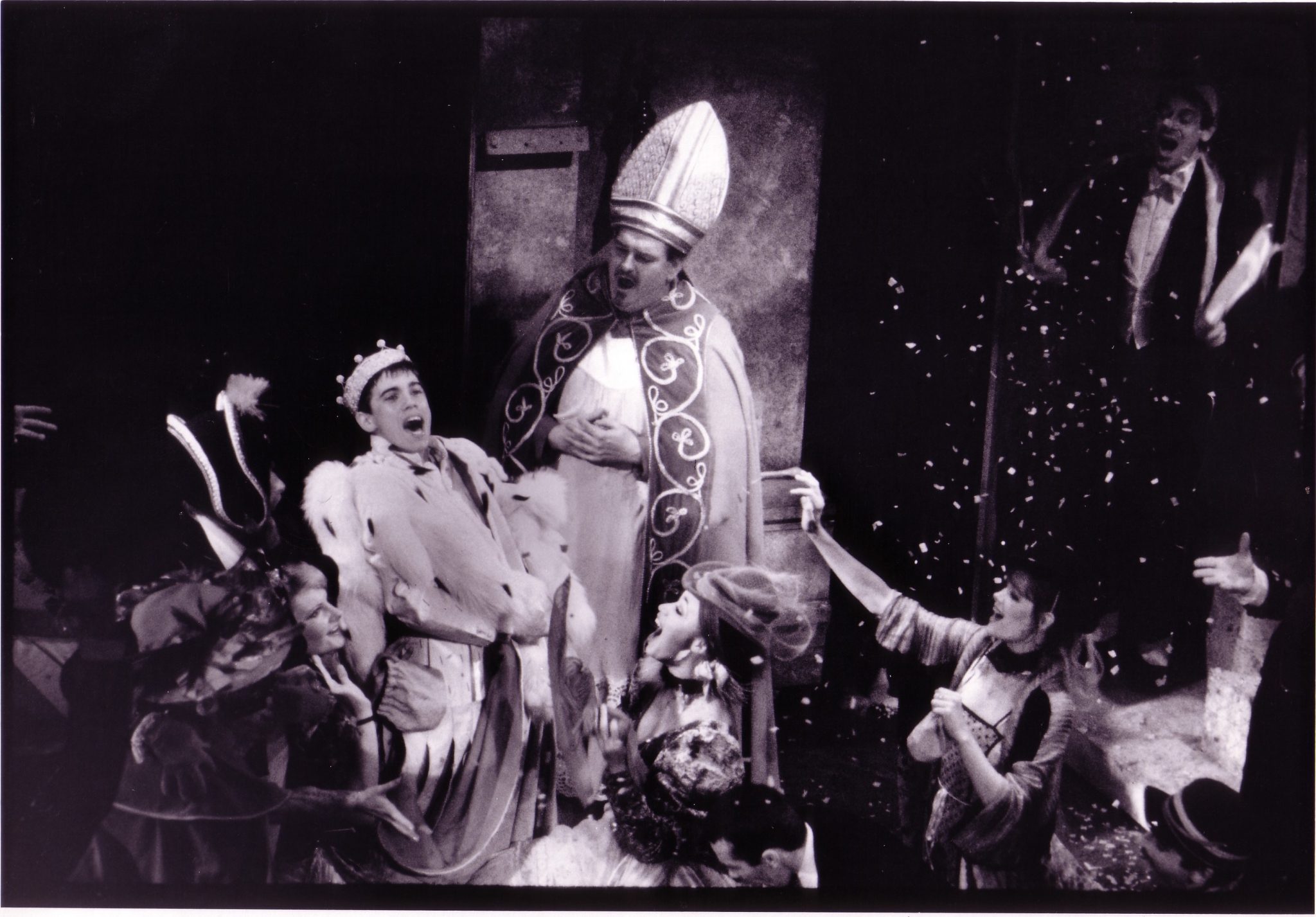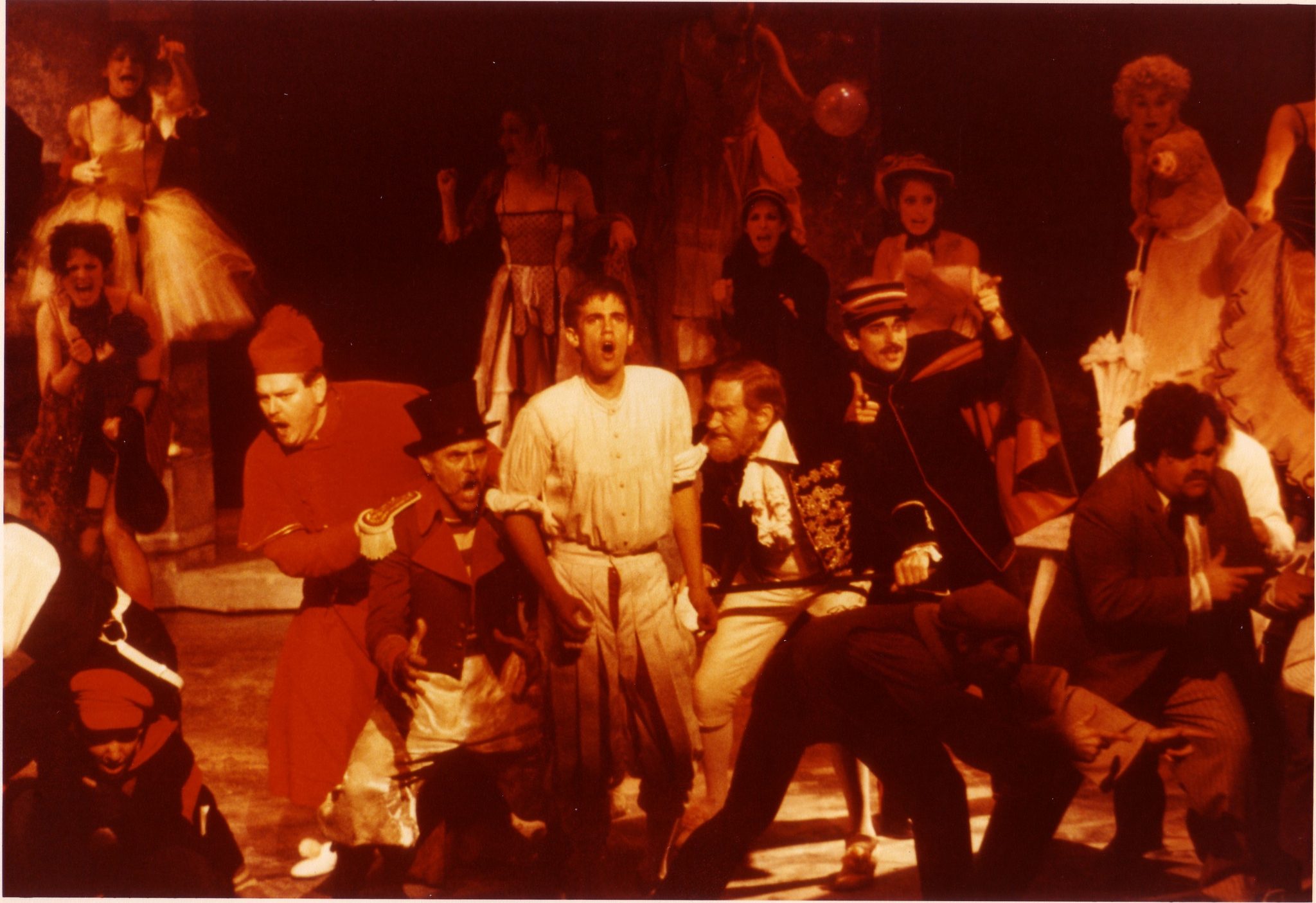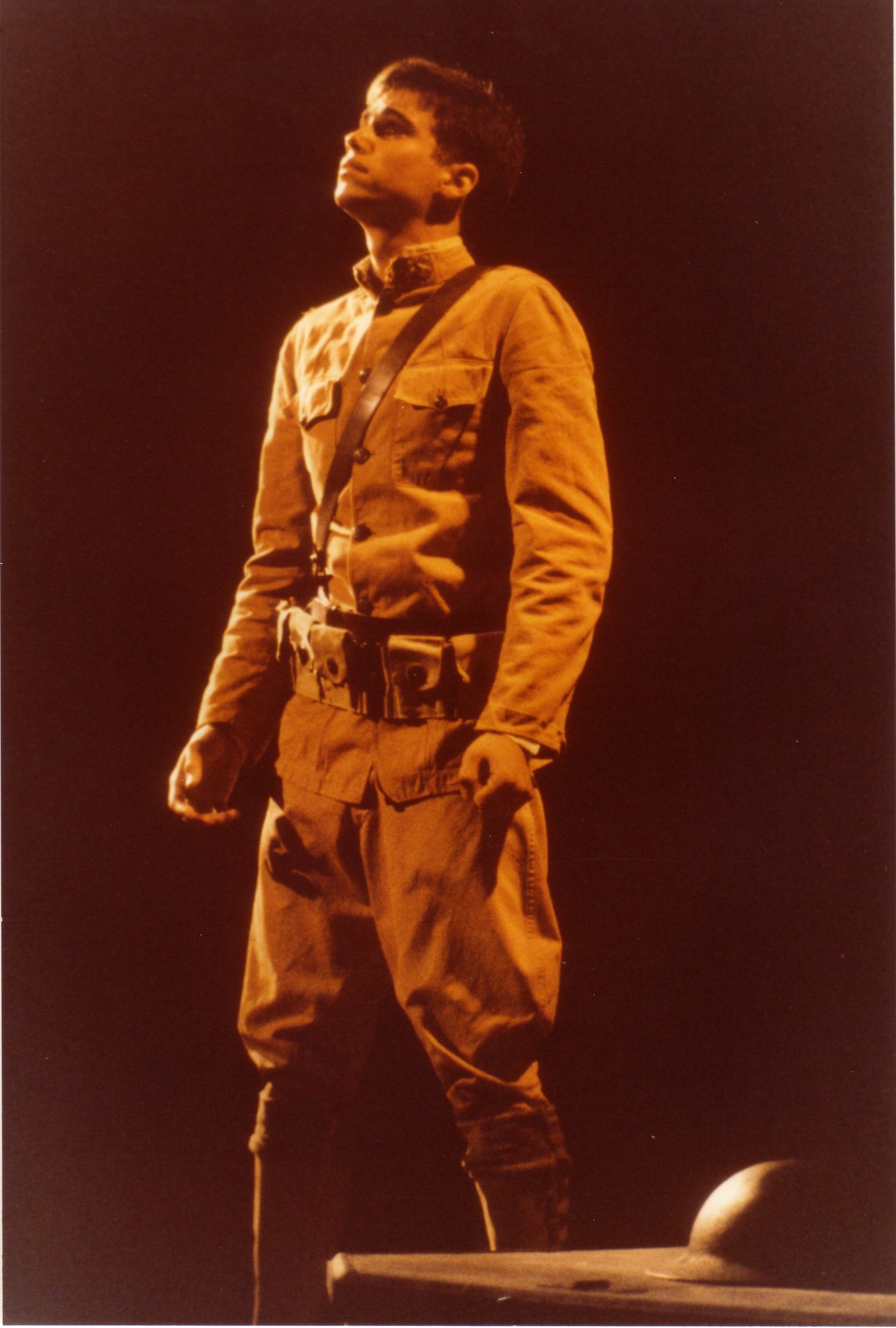Remembering King of Hearts
When I was in college in the 1990s, my favorite course was The History of the American Musical Theatre. The stories, the evolution of the form, the music, the musicals themselves all played into the interests I had been cultivating for years, listening to cast albums and reading librettos checked out of the local library. I adored this class so much, in fact, that I took it four times, once as a for-credit class within my major, and three other times as an independent study. With each round, the professor catered my experience so that I would hopefully learn something new and not just repeat old material. On round three, he chose musical theatre flops to be my focus. As the class explored musical theatre by the decade, I would study the flops of the same period, often going to the college library and finding old theatre reviews bound in these enormous binders. When we started on the 1970s, this is when I happened upon a show I hadn’t heard of, a charming piece of musical theatre that, although imperfect in so many ways, had little bursts of brilliance. That musical was King of Hearts.
Robbie Benson (Johnny), Michael McCarty (Bishop) Coronation – Westport Playhouse
King of Hearts was based on a 1966 French film of the same name, a comedy-drama taking place at the end of World War I. It is 1918 in the town of DuTemps and Private Johnny Perkins is sent into the village to defuse a bomb that would have wiped the community clear off of the map. Upon his arrival, he finds that DuTemps’ denizens have all evacuated , save the residents of the local insane asylum. When Johnny seeks shelter in the hospital (leaving the gates open), the insane take to the streets, and cast themselves in the roles once held by the sane. In their unique and wonderful way, they make their case for their sanity juxtaposed against a world where the supposedly sane wage war, ultimately making Johnny their king.
Before it made its way to Broadway, the show premiered at the Westport Country Playhouse where King of Hearts had a book by Steve Tesich, music by Peter Link and lyrics by Jacob Brackman. Robby Benson was cast in the lead for that production. With a new book written by Joseph Stein (Fiddler on the Roof), King of Heartsopened on Broadway on October 22, 1978, with direction and choreography by Ron Field. What arguably should have played an intimate house (more suitable to the show’s tone and themes), King of Hearts was instead produced at the mammoth Minskoff Theatre where it lasted for 46 performances before throwing in the towel. The cast included Don Scardino as Johnny, as well as Pamela Blair, Bob Gunton, and Millicent Martin in supporting roles. The musical received a singular Tony nomination of Best Supporting Actress for Martin. Of particular note were the stylized, impressionistic-bordering-on-absurdist sets by Santo Loquasto that captured the madness with its whimsy, particularly a twisting jungle gym of beds representing the interior of the asylum. Patricia Zipprodt was equally as clever with her quirky, character-defining costumes.
The Peter Link/Jacob Brackman score for King of Hearts felt a bit like a throwback to the scores of the later 60s/early 70s, and it certainly employed themes that came with the anti-war sentiment of that period. Uneven as the score is, there are gems to be found in numbers such as the haunting “Déjà Vu”, the hypnotic “Nothing Only Love”, the reflective “Close Upon the Hour” and the jubilant title song. In end, most critics believed that there just wasn’t enough of a story to sustain King of Hearts. Once the premise of the story was set, there was really nowhere for the show to evolve toward.














